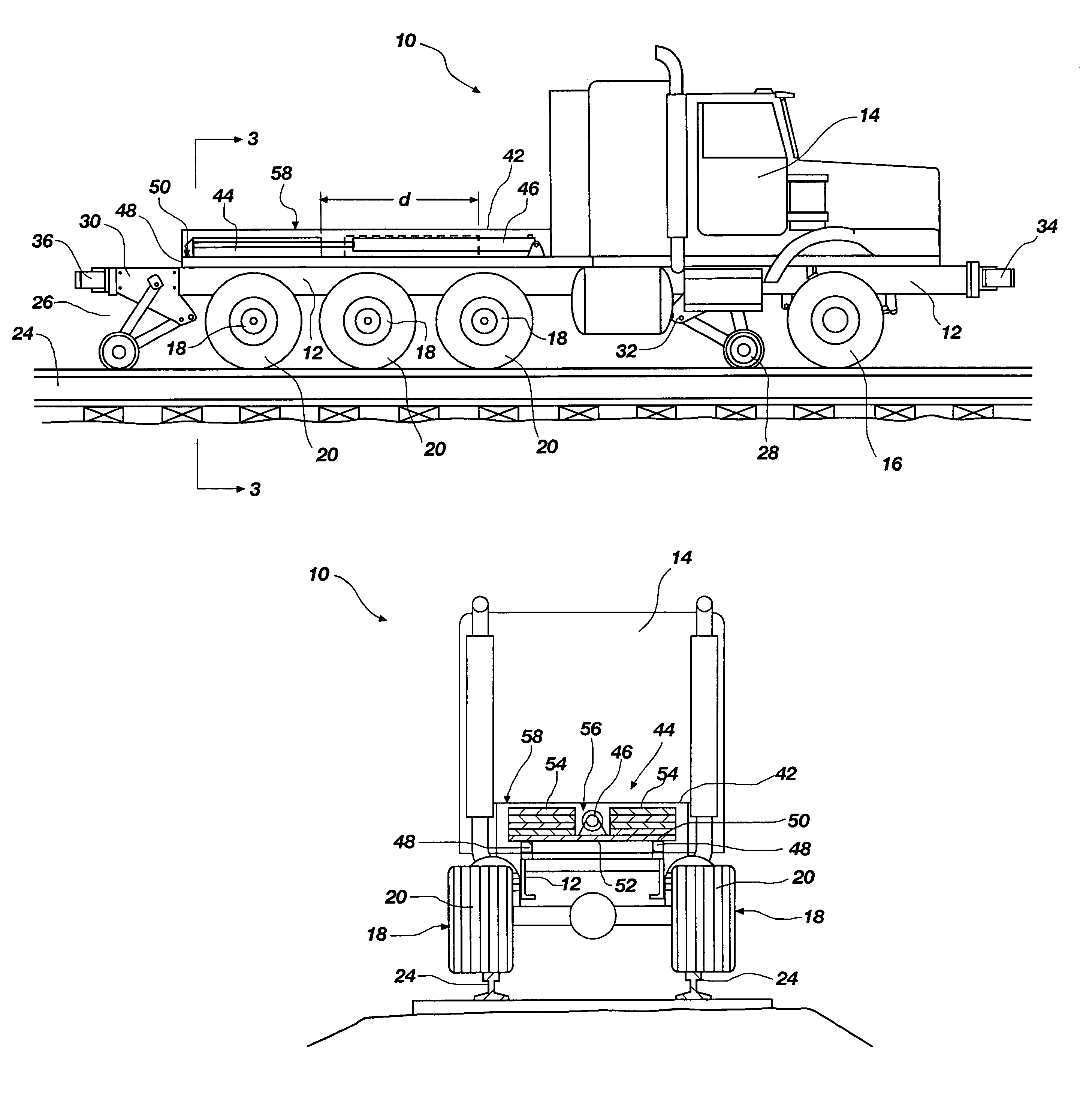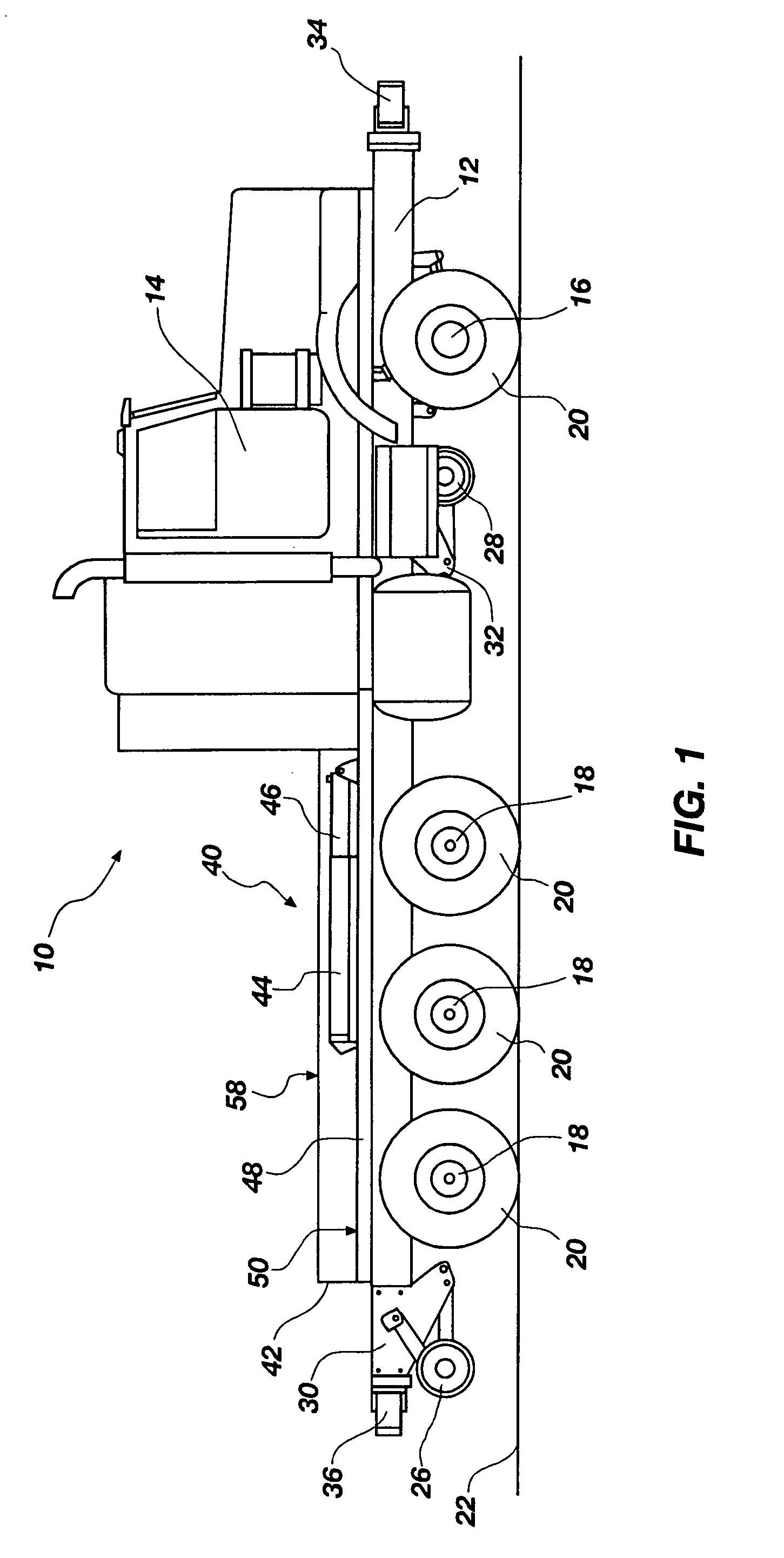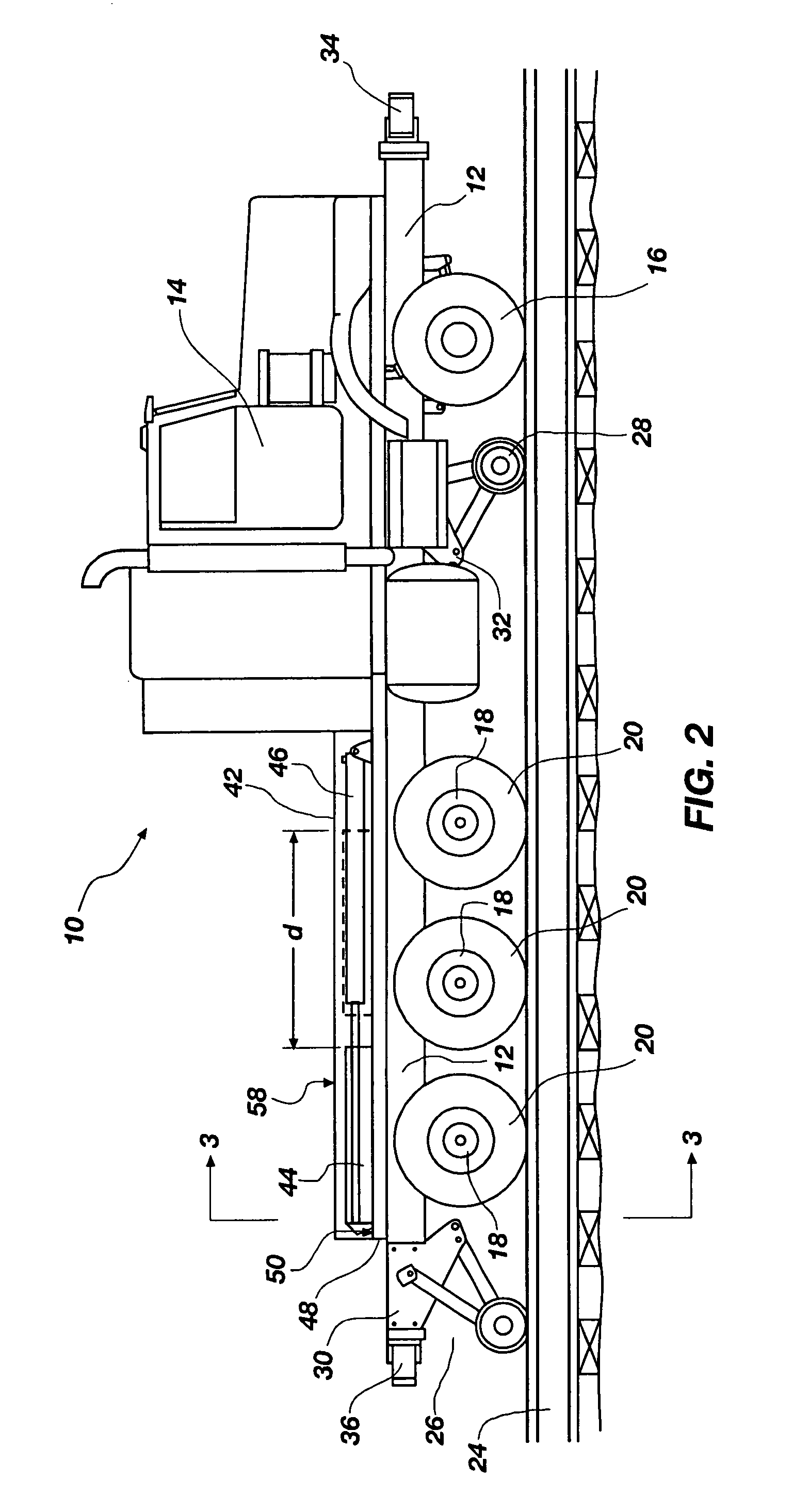Road/rail vehicle with load-shifting device
a technology of load-shifting device and road/rail vehicle, which is applied in the direction of locomotives, retractable wheels, transportation and packaging, etc., can solve the problems of high cost, high cost, and inconvenient use of traditional locomotives, and achieve the effect of sufficient weigh
- Summary
- Abstract
- Description
- Claims
- Application Information
AI Technical Summary
Benefits of technology
Problems solved by technology
Method used
Image
Examples
Embodiment Construction
[0017]Reference will now be made to the exemplary embodiments illustrated in the drawings, and specific language will be used herein to describe the same. It will nevertheless be understood that no limitation of the scope of the invention is thereby intended. Alterations and further modifications of the inventive features illustrated herein, and additional applications of the principles of the invention as illustrated herein, which would occur to one skilled in the relevant art and having possession of this disclosure, are to be considered within the scope of the invention.
[0018]Shown in FIGS. 1–3 are side and rear views, respectively, of a railcar-moving vehicle 10 comprising a modified semi tractor that is convertible for use both on highways and on rails. The modified semi tractor is a conventional semi tractor in most respects, having an elongate frame 12, a cab 14 housing the engine and controls, front wheels 16 and a series of rear drive wheels 18. The front wheels and rear dr...
PUM
 Login to View More
Login to View More Abstract
Description
Claims
Application Information
 Login to View More
Login to View More - R&D
- Intellectual Property
- Life Sciences
- Materials
- Tech Scout
- Unparalleled Data Quality
- Higher Quality Content
- 60% Fewer Hallucinations
Browse by: Latest US Patents, China's latest patents, Technical Efficacy Thesaurus, Application Domain, Technology Topic, Popular Technical Reports.
© 2025 PatSnap. All rights reserved.Legal|Privacy policy|Modern Slavery Act Transparency Statement|Sitemap|About US| Contact US: help@patsnap.com



